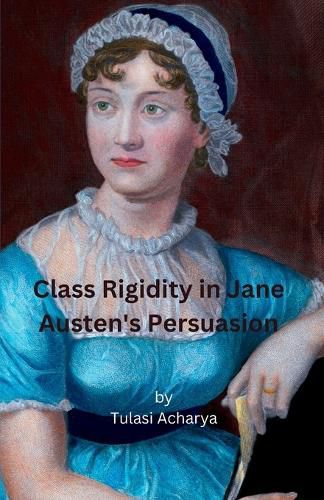Readings Newsletter
Become a Readings Member to make your shopping experience even easier.
Sign in or sign up for free!
You’re not far away from qualifying for FREE standard shipping within Australia
You’ve qualified for FREE standard shipping within Australia
The cart is loading…






This title is printed to order. This book may have been self-published. If so, we cannot guarantee the quality of the content. In the main most books will have gone through the editing process however some may not. We therefore suggest that you be aware of this before ordering this book. If in doubt check either the author or publisher’s details as we are unable to accept any returns unless they are faulty. Please contact us if you have any questions.
Class Rigidity in Jane Austen's Persuasion is my hypothesis that I have proved using the tools of New Historicism. New Historicism has become significant in the criticism of Medieval and nineteenth-century British and American literature, and it is making its way into the criticism of modernist literature and eighteenth-century literature as well. The role of New Historicists is to create a more cultural or anthropological criticism, one that is conscious of its own status as interpretation and intent upon understanding literature as part of a system of signs that constitute a given culture. Literary criticism and cultural critique are integrated, with the critic's role being to investigate both the social presence of the literary text in the world and the social presence of the world in the literary text. The book highlights the social rules, codes, or norms articulated within the text acknowledging their own predispositions and cultural biases while exploring how the multiple voices within a text are balanced, reconciled, or subverted. With a concern for questions of power and culture, the book demonstrates how Jane Austen is guided by the ideology of class-consciousness. The book examines the multiple voices of the characters, provides a detailed description of the text, and delves into the political and social situations as essential components.
$9.00 standard shipping within Australia
FREE standard shipping within Australia for orders over $100.00
Express & International shipping calculated at checkout
This title is printed to order. This book may have been self-published. If so, we cannot guarantee the quality of the content. In the main most books will have gone through the editing process however some may not. We therefore suggest that you be aware of this before ordering this book. If in doubt check either the author or publisher’s details as we are unable to accept any returns unless they are faulty. Please contact us if you have any questions.
Class Rigidity in Jane Austen's Persuasion is my hypothesis that I have proved using the tools of New Historicism. New Historicism has become significant in the criticism of Medieval and nineteenth-century British and American literature, and it is making its way into the criticism of modernist literature and eighteenth-century literature as well. The role of New Historicists is to create a more cultural or anthropological criticism, one that is conscious of its own status as interpretation and intent upon understanding literature as part of a system of signs that constitute a given culture. Literary criticism and cultural critique are integrated, with the critic's role being to investigate both the social presence of the literary text in the world and the social presence of the world in the literary text. The book highlights the social rules, codes, or norms articulated within the text acknowledging their own predispositions and cultural biases while exploring how the multiple voices within a text are balanced, reconciled, or subverted. With a concern for questions of power and culture, the book demonstrates how Jane Austen is guided by the ideology of class-consciousness. The book examines the multiple voices of the characters, provides a detailed description of the text, and delves into the political and social situations as essential components.